
What is carbon capture?
Carbon dioxide (CO2) emissions generated by human activities have led to an accumulation of greenhouse gases in the atmosphere that is causing an increase in
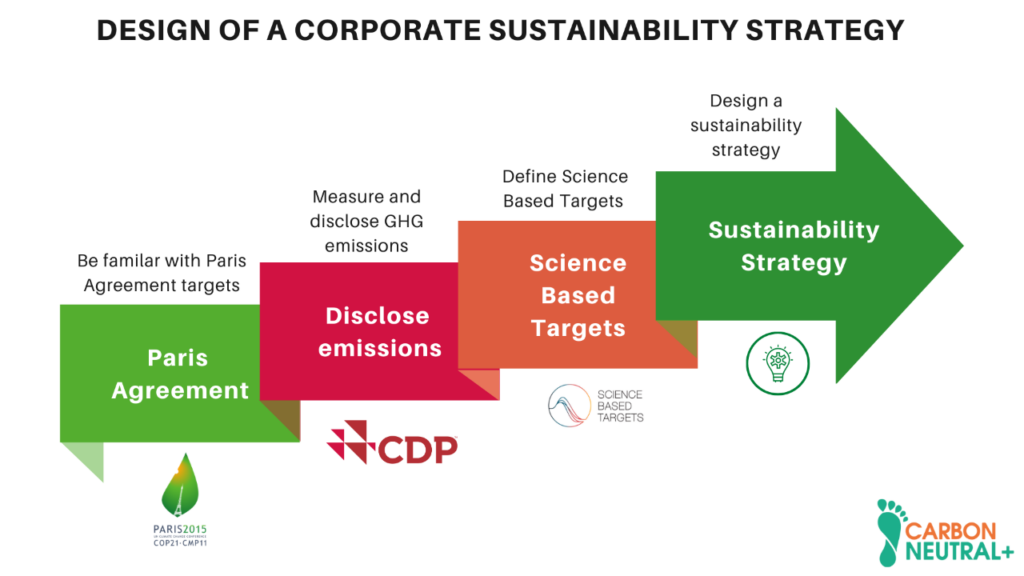
As the world faces the looming effects of climate change, more and more companies are recognizing the importance of adopting sustainable strategies that aim to minimize their environmental impact.
The Paris Agreement, signed by 195 countries in 2015, sets a clear goal of limiting global warming below 2 degrees Celsius above pre-industrial levels. To achieve this goal, companies must take steps to reduce their emissions and transition to a carbon neutral economy.
In this regard, the Carbon Disclosure Project (CDP) is an initiative that enables companies to measure, disclose and manage their environmental impacts.
Another key initiative is the adoption of Science based targets (SBTs), which are specific and measurable goals aligned with the Paris Agreement and are based on the latest climate science.
In this article, we’ll tell you how the Paris Agreement, CDP and SBTs are driving sustainable strategies focused on the company’s impact on climate change, paving the way for a greener future in the business world.
The Paris Agreement is a landmark international agreement that seeks to limit global warming of the Earth to below 2 degrees Celsius above pre-industrial levels, with the goal of limiting warming to 1.5 degrees Celsius.
The agreement was signed by 195 countries in 2015 at COP21. The Paris Agreement recognizes the urgent need to address climate change. To this end, it calls for global cooperation to reduce greenhouse gas (GHG) emissions and transition to a more sustainable economic model.
To achieve the goals of the Paris Agreement, businesses have a key role to play. These goals require changes in business practices, including the adoption of sustainable business models. Also the implementation of innovative technologies that reduce GHG emissions associated with their operations.
Corporate sustainable strategies are essential to achieve the Paris Agreement decarbonization goals. These strategies involve the adoption of sustainable practices that reduce the environmental impacts of businesses, while promoting economic growth and social welfare.
Corporate sustainability strategies can take many forms. For example, the adoption of renewable energy sources, the implementation of energy-efficient technologies, waste and emissions reductions, and sustainable supply chains development.
However, this whole journey starts with measurement. In order to improve and reduce their environmental impact, it is important for companies to quantify it. Based on the results obtained, a sustainable strategy should be developed that is appropriate to the company’s structure and possibilities.
When we talk about the Paris Agreement, we talk about companies limiting the generation of GHG emissions that contribute to global warming. To this end, there is an initiative that seeks to get companies to measure, report and manage their GHG emissions: The Carbon Disclosure Project.
The Carbon Disclosure Project (CDP) is an international non-profit organization that provides a platform for companies to measure, report and manage their environmental impact.
CDP collects GHG emissions data from thousands of companies around the world. This data is used to track their performance, design environmental targets and inform investment decisions.
The CDP provides a framework for companies to set and achieve sustainability targets. Through the CDP, companies can benchmark their performance against their competitors, identify areas for improvement, and develop sustainability strategies that align with the Paris Agreement goals.
Measuring and reporting environmental impacts is the first step in developing a corporate sustainable strategy. The CDP provides a standardized framework for companies to measure and report their environmental impacts, identify areas for improvement and develop strategies to reduce their carbon footprint. This information can also be used to inform investment decisions and demonstrate to stakeholders their commitment to sustainability.
It is important that the environmental strategies adopted by companies are aligned with the latest scientific findings on climate change. To this end, there is an initiative called Science Based Targets, which seeks to have companies define decarbonization targets aligned with the latest climate science and the goals set out in the Paris agreement.
The Science Based Targets (SBTi) initiative is a collaboration between:
The Science Based Targets initiative started in 2015, with the aim of helping companies set emissions reduction targets aligned with the latest scientific findings on climate change and the Paris Agreement.
Today, more than 4665 organizations have already joined the Science Based Targets initiative. Of these companies, 2366 have already set science-based reduction targets and 1720 have defined carbon neutral targets for 2050.
In 2021, the SBTi introduced the world’s first net-zero standard, allowing companies to set science-based carbon neutrality targets.
The advantages of adopting science-based targets for corporate sustainability
SBTs are specific, measurable targets aligned with the Paris Agreement and based on the latest climate science. These targets provide a starting point for companies to reduce their GHG emissions, and thus their environmental impact.
Adopting science-based targets has many advantages for companies, some of which include:
Many companies around the world have adopted science-based targets and are leading the way in corporate sustainability. One such is Unilever, which has committed to sustainably source all of its agricultural raw materials and be carbon negative by 2030. Another example is Microsoft, which has committed to be carbon negative by 2030 and to eliminate all the carbon it has emitted since its founding in 1975 by 2050.
Below we list some examples of companies that have defined science-based targets in line with the temperature limits set out in the Paris Agreement.
Companies that have defined emissions reduction targets aligned to limiting the Earth’s temperature by 1.5 degrees Celsius:
Companies that have defined emission reduction targets aligned with limiting the Earth’s temperature by 2 degrees Celsius:
Companies that have made a commitment to carbon neutrality:
Adopting sustainable strategies presents both challenges and opportunities for companies. On one hand, the transition to a low-carbon economy requires significant investment and can be challenging for companies. This has to do with the need of a professional to design such strategies. At the same time, initial investments are required to modify processes that are not aligned with environmental objectives.
On the other hand, companies that implement sustainability in their processes are better positioned to attract customers, investors and employees who value sustainability.
In addition to this, the investments made are recovered in the medium term, since through improvements companies can reduce their energy consumption, raw material consumption and waste generation (whose management has an associated cost).
Below we define the interrelationship between the initiatives mentioned in this article in the design of a corporate sustainability strategy:
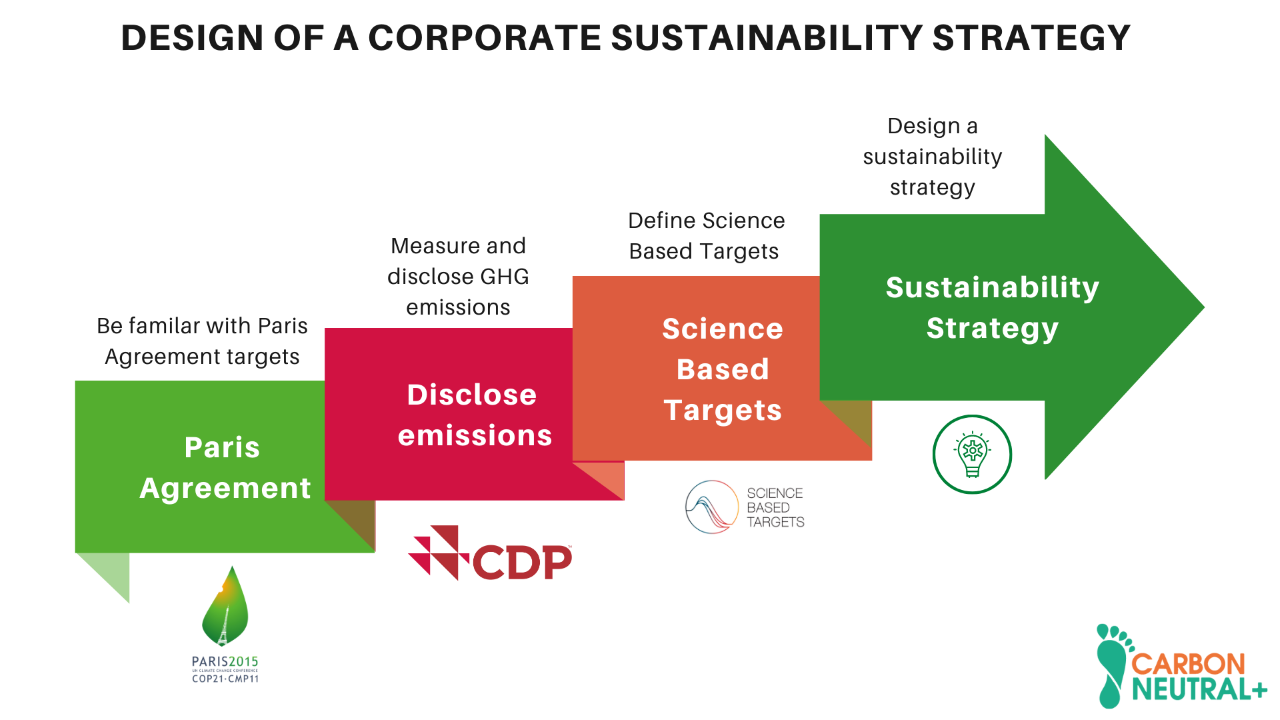
Conclusions: The importance of corporate sustainable strategies.
Adopting sustainability strategies at the corporate level is essential to achieving the goals of the Paris Agreement and reducing the imminent effects of climate change.
The Paris Agreement, the Carbon Disclosure Project and science-based targets (SBTs) are driving corporate sustainability strategies and paving the way to a more sustainable future.
To achieve this vision, we need to work together to reduce our carbon footprint and transition to a sustainable economic model. Through collective action, we can create a more sustainable future, both for ourselves and for future generations.
At CARBON NEUTRAL+ we accompany you to implement a sustainable strategy aligned with international standards. Our team of experts will accompany you every step of the way to ensure that your sustainability goals are met.
Contact us to start building a more sustainable future!

Carbon dioxide (CO2) emissions generated by human activities have led to an accumulation of greenhouse gases in the atmosphere that is causing an increase in

According to the Emissions Gap Report 2022, the growth rate of global greenhouse gas (GHG) emissions has declined over the last decade. Between 2010 and
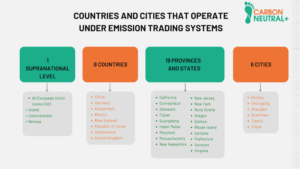
As international agreements related to corporate greenhouse gas emissions (GHG) come into force, the regulations associated with the generation of these emissions increase. This is
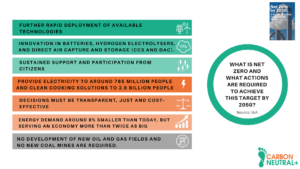
Climate change is one of the greatest concerns of our time. This phenomenon is generating consequences that are difficult to reverse, such as an increase

The Paris Agreement is an international agreement adopted on December 12, 2015 during the United Nations Climate Change Conference (COP21) in Paris, France. One of
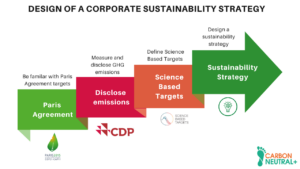
As the world faces the looming effects of climate change, more and more companies are recognizing the importance of adopting sustainable strategies that aim to
| Cookie | Duration | Description |
|---|---|---|
| cookielawinfo-checkbox-analytics | 11 months | This cookie is set by GDPR Cookie Consent plugin. The cookie is used to store the user consent for the cookies in the category "Analytics". |
| cookielawinfo-checkbox-functional | 11 months | The cookie is set by GDPR cookie consent to record the user consent for the cookies in the category "Functional". |
| cookielawinfo-checkbox-necessary | 11 months | This cookie is set by GDPR Cookie Consent plugin. The cookies is used to store the user consent for the cookies in the category "Necessary". |
| cookielawinfo-checkbox-others | 11 months | This cookie is set by GDPR Cookie Consent plugin. The cookie is used to store the user consent for the cookies in the category "Other. |
| cookielawinfo-checkbox-performance | 11 months | This cookie is set by GDPR Cookie Consent plugin. The cookie is used to store the user consent for the cookies in the category "Performance". |
| viewed_cookie_policy | 11 months | The cookie is set by the GDPR Cookie Consent plugin and is used to store whether or not user has consented to the use of cookies. It does not store any personal data. |